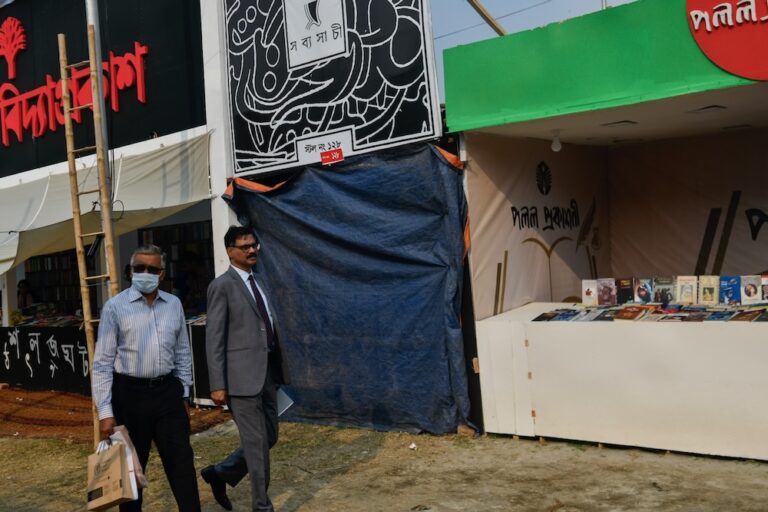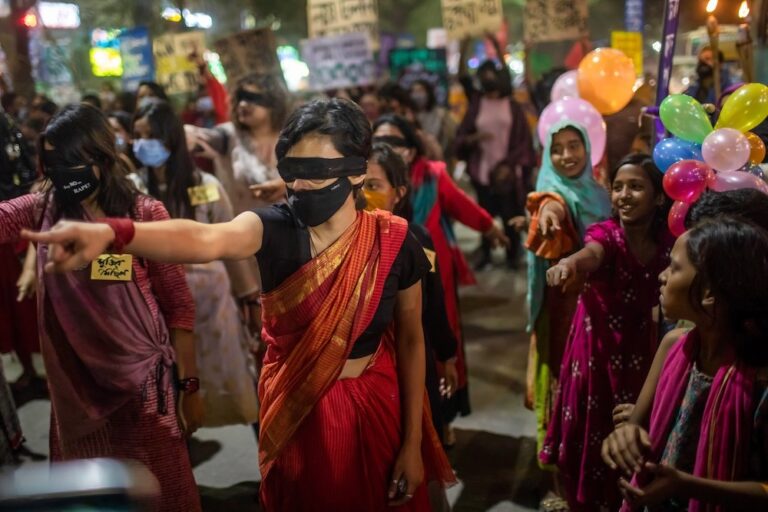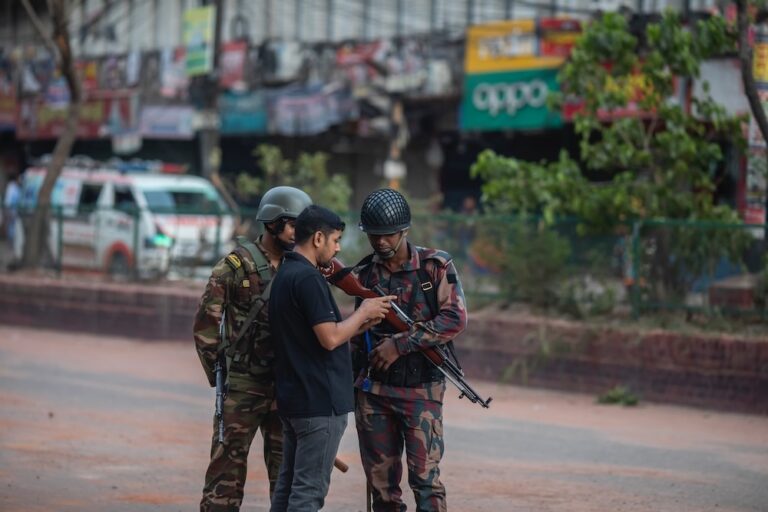(RSF/IFEX) – In an 18 August 1999 letter to Bangladeshi Prime Minister Sheikh Hasina, RSF protested the issuing of arrest warrants against three journalists. RSF pointed out that “in a document dated 14 July 1992, the United Nations Commission on Human Rights emphasised that ‘detention as punishment for the expression of an opinion is one […]
(RSF/IFEX) – In an 18 August 1999 letter to Bangladeshi Prime Minister
Sheikh Hasina, RSF protested the issuing of arrest warrants against three
journalists. RSF pointed out that “in a document dated 14 July 1992, the
United Nations Commission on Human Rights emphasised that ‘detention as
punishment for the expression of an opinion is one of the most reprehensible
means to enjoin silence, and as such constitutes a serious violation of
human rights’.” Therefore, RSF asked Hasina to ensure that “the three
journalists are not arrested and can perform their duties while awaiting a
verdict in the defamation case.”
On 17 August, a magistrate with Lalmonirhat District Court issued arrest
warrants in a defamation case against K. G. Mostafa and Iqbal Ahmed, the
editor and managing editor of “Dainik Muktakanta”, and Mukul Mahbood, a
correspondent in Lalmonirhat. The case was filed by a local ruling party
(Awami League) leader after the newspaper published a report based on a
petition faxed to the prime minister and home minister by the general
secretary of the Lalmonirhat Press Club. In this text, the journalist sought
protection for the local journalists who had fallen under the wrath of the
deputy commissioner after exposing his involvement in corruption.


